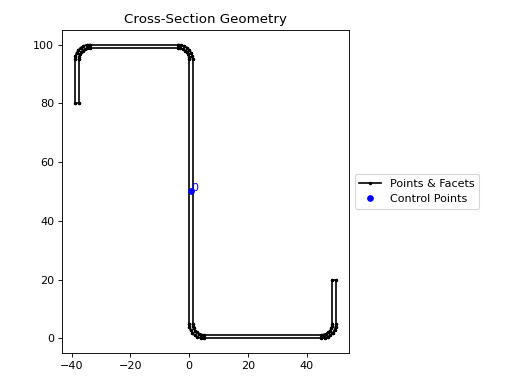zed_section#
- sectionproperties.pre.library.steel_sections.zed_section(d: float, b_l: float, b_r: float, l: float, t: float, r_out: float, n_r: int, material: Material = Material(name='default', elastic_modulus=1, poissons_ratio=0, yield_strength=1, density=1, color='w')) Geometry[source]#
Constructs a zed section.
Constructs a zed section with the bottom left corner at the origin
(0, 0), with depth``*d``, left flange widthb_l, right flange widthb_r, lipl, thicknesstand outer radiusr_out, usingn_rpoints to construct the radius. If the outer radius is less than the thickness of the Zed Section, the inner radius is set to zero.- Parameters:
d (float) – Depth of the zed section
b_l (float) – Left flange width of the zed section
b_r (float) – Right flange width of the zed section
l (float) – Lip of the zed section (which can be zero)
t (float) – Thickness of the zed section
r_out (float) – Outer radius of the zed section
n_r (int) – Number of points discretising the outer radius
material (Material) – Material to associate with this geometry
- Returns:
Zed section geometry
- Return type:
Example
The following example creates a zed section with a depth of 100 mm, a left flange width of 40 mm, a right flange width of 50 mm, a lip of 20 mm, a thickness of 1.2 mm and an outer radius of 5 mm, using 8 points to discretise the radius:
from sectionproperties.pre.library import zed_section zed_section( d=100, b_l=40, b_r=50, l=20, t=1.2, r_out=5, n_r=8 ).plot_geometry()
(
Source code,png,hires.png,pdf)
Zed section geometry#